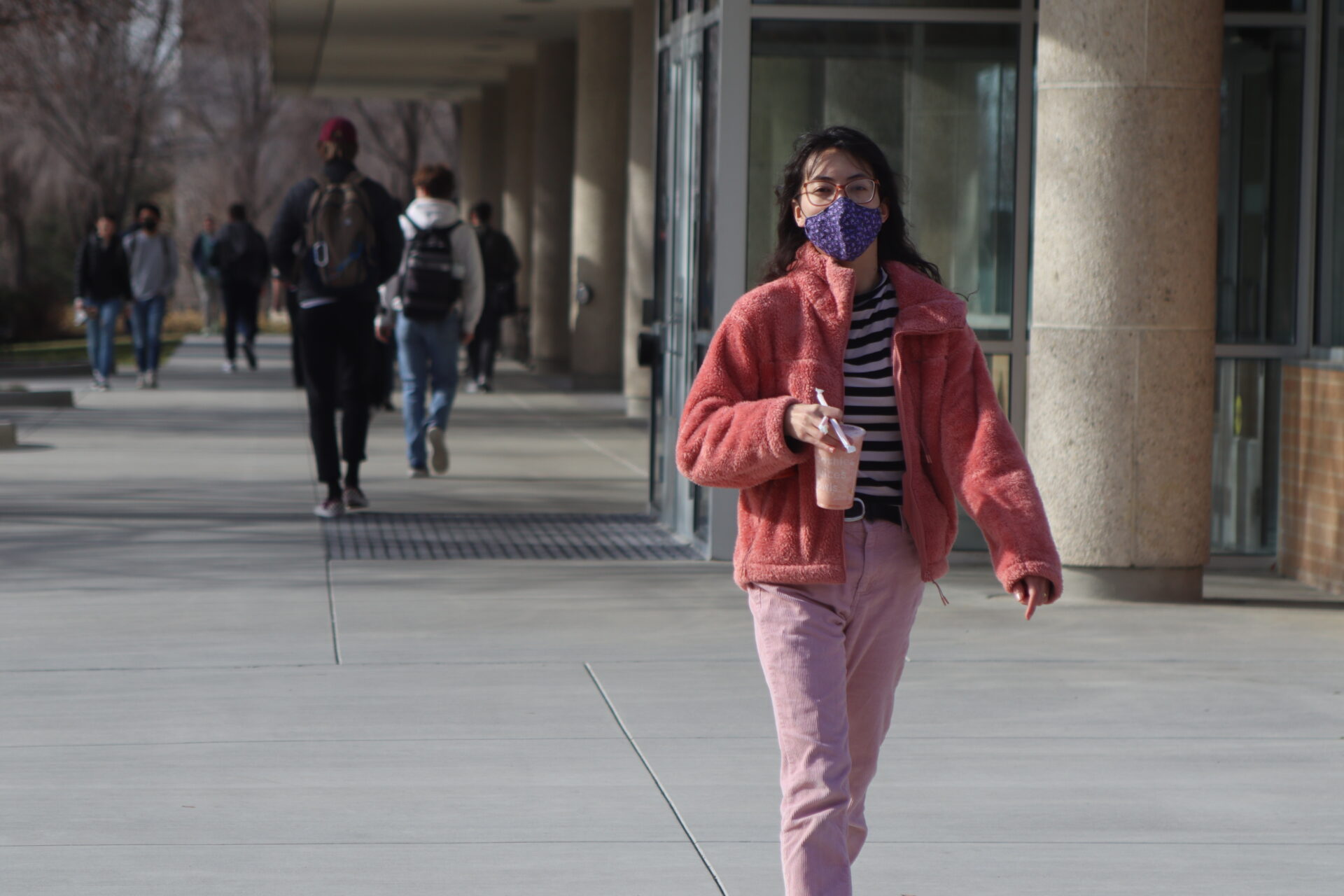
BYU College of Life Sciences faculty members and students emphasize the importance of masks, COVID-19 testing and vaccinations, especially with the new omicron variant.
“Scientific consensus on this issue is clear — wearing a mask significantly decreases COVID-19 transmission,” BYU biology professor Byron Adams said.
Adams said he regards mass-compliance to be the key to making masks effective. His students were 100% mask-wearers in the classroom last semester and he doesn’t believe this semester will be any different.
“Students who have some kind of hang-up with this can take it up with the Honor Code Office,” Adams said. “The Honor Code requires we be respectful of others. What’s more disrespectful than passing a deadly virus to somebody?”
Other professors in the College of Life Sciences shared additional insight regarding masks.
“It all depends on the type of mask you are wearing,” BYU lab administrator Robert Black said. “Most of the disposable masks that people wear on campus are very effective for preventing the spread of viruses from the wearer to nearby people.”
Black also acknowledged the threat of asymptomatic people unknowingly carrying the virus.
“Since anyone can be an asymptomatic carrier, it is important that everyone wear masks when physical distancing is not possible,” Black said.
Cell biology and physiology professor Timothy Jenkins said correlations can be drawn from wearing masks.
“Since people have been social distancing and wearing masks and things like that, there certainly was a low in the virus causing respiratory disease,” Jenkins said. “So it stands to reason that it has an effect.”
However, Jenkins said he recognized the uncertainty there can be regarding masks and correlating data.
“Defining precisely what that effect is, is virtually impossible in my opinion,” Jenkins said. “I just don’t know how you would do it.”
According to BYU’s COVID-19 statistics page, nearly 20% of on-campus individuals have yet to be fully vaccinated. Another 2.4% of campus have not self-reported.
“Failure to follow mask policies and social distancing regulations leads to more COVID cases and puts the school at risk of going virtual again and/or removes a safe learning environment for those who are at risk,” BYU student Charity Campbell said.
Several science professors offered their ideas as to why so many on-campus individuals are unvaccinated or unreported.
“There are a lot of conspiracy theories on social media that have given people a false understanding of the vaccine and/or the virus,” Black said. “It ranges from a lack of trust in science, to political views.”
Adams also said that statistically, there is no way BYU has that many students who are allergic to the vaccines. “And I can’t fathom that so many of our students could be bamboozled by disinformation, misinformation and ideologies that are inconsistent with what our Church leaders and the smartest scientists in the world have been telling us.”
Unlike many other universities, BYU continues to not require full-vaccination status for its students and faculty. Adams said he regards the lack of requirement as a tactic to gain a higher vaccination rate. In his opinion, BYU students are more likely to get vaccinated when offered the choice instead of being forced.
“Our board of trustees is made up of prophets, apostles, seers, revelators. I think it’s OK to get on board with the idea that they know what they’re doing,” Adams said.




